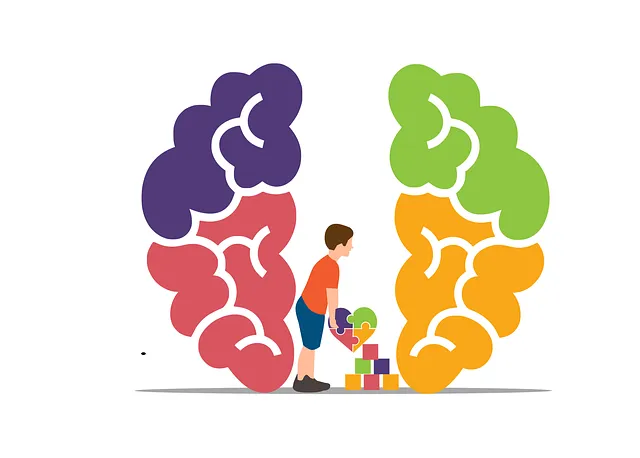Denver's mental health system needs improved access and cultural sensitivity. Kaiser offers both inpatient and outpatient programs, addressing diverse needs through specialized care, training, and community outreach. Partnerships and public campaigns enhance accessibility, while measuring KPIs and participant feedback ensure program effectiveness. This comprehensive approach aims to improve mental health services in Denver.
Community outreach programs play a vital role in addressing the mental health needs of diverse populations. This article explores how Kaiser, a prominent healthcare provider, navigates Denver’s landscape by offering both inpatient and outpatient services. We delve into effective strategies targeting at-risk groups and highlight partnerships with local organizations. Additionally, we measure success through impact evaluation, examining how these programs enhance access to mental health care in Denver. Understanding community needs is key, especially when asking: does Kaiser have inpatient mental health services in Denver?
- Understanding Community Needs in Denver for Mental Health Care
- Kaiser's Role: Inpatient vs Outpatient Services in Denver
- Developing Effective Outreach Strategies for Targeted Populations
- Building Partnerships with Local Organizations and Clinics
- Measuring Success: Evaluating the Impact of Outreach Programs
Understanding Community Needs in Denver for Mental Health Care

Denver, like many cities, faces unique challenges when it comes to mental health care accessibility. Understanding community needs is a crucial step in addressing these issues. According to recent studies, there’s a growing demand for services that cater to diverse populations, especially considering the city’s cultural mix. Many residents struggle with access to quality, culturally competent healthcare, as evidenced by the lack of inpatient mental health facilities like those offered by Kaiser.
This gap highlights the importance of community outreach programs that focus on emotional healing processes and promote self-care practices tailored to Denver’s diverse communities. Furthermore, enhancing healthcare provider cultural competency training can ensure that services are delivered effectively, fostering trust and acceptance within these communities. By recognizing and addressing these needs, initiatives can significantly improve mental health outcomes for all Denver residents.
Kaiser's Role: Inpatient vs Outpatient Services in Denver

Kaiser, a prominent healthcare provider in Denver, offers a diverse range of services catering to both inpatient and outpatient mental health needs. Inpatient programs focus on intensive, round-the-clock care for severe conditions or crises, providing a safe space for individuals undergoing significant mental health challenges. These programs often include specialized treatments such as Social Skills Training and Mental Wellness Journaling Exercise Guidance tailored to address specific issues.
Outpatient services, on the other hand, are designed for those who require ongoing support but can manage their care outside of a hospital setting. Kaiser provides comprehensive outpatient care that includes Healthcare Provider Cultural Competency Training to ensure diverse communities receive sensitive and effective treatment. This dual approach allows Kaiser to cater to a wide range of mental health needs in Denver, offering both intensive inpatient care and accessible outpatient services.
Developing Effective Outreach Strategies for Targeted Populations

Effective community outreach strategies are crucial when targeting specific populations with unique needs, such as those seeking inpatient mental health services in Denver. Organizations like Kaiser must tailor their approach to reach and engage diverse communities effectively. One key strategy involves adopting Compassion Cultivation Practices, which foster understanding and connection, especially beneficial for building trust within marginalized or underrepresented groups.
By implementing these practices, Kaiser can combat potential burnout among staff while enhancing the overall well-being of community members. Encouraging positive thinking and open dialogue creates a safe space, encouraging individuals to seek help without stigma. This targeted approach ensures that services like inpatient mental health in Denver are accessible and tailored to meet the specific needs of the community.
Building Partnerships with Local Organizations and Clinics

Building partnerships with local organizations and clinics is a strategic move for community outreach programs, especially when focusing on mental health services. In Denver, for instance, where Kaiser offers inpatient mental health services, collaboration between healthcare providers and community-based entities can significantly enhance access to care. By joining forces, these partnerships enable the development of comprehensive Public Awareness Campaigns that educate residents about available resources, target specific issues like trauma support services, and promote emotional regulation techniques.
Such collaborations also facilitate the integration of cultural sensitivity and linguistic diversity in outreach efforts, ensuring that mental health information and assistance reach all segments of the community. This coordinated approach not only increases public awareness but also encourages individuals to seek help early on, fostering a healthier and more resilient Denver community.
Measuring Success: Evaluating the Impact of Outreach Programs

Measuring success is an integral part of any community outreach program, especially when addressing mental health concerns like those offered by inpatient mental health facilities in Denver, such as Kaiser. Evaluating the impact allows organizations to understand the effectiveness of their initiatives and make informed decisions for future programs. One way to gauge success is by tracking key performance indicators (KPIs) specific to the goals of the outreach. For example, if the program aims to increase Mental Health Awareness, KPIs might include the number of attendees at educational workshops or the reach of online resources related to Self-Care Practices and Anxiety Relief.
Qualitative measures are also valuable. Feedback from participants can offer insights into how the program has affected their lives, whether it’s inspiring positive changes in self-care routines or providing much-needed support for managing anxiety. By combining quantitative and qualitative data, organizations can gain a comprehensive view of the program’s success and identify areas that require improvement, ensuring the ongoing development of impactful community outreach initiatives.
Community outreach programs play a vital role in addressing the mental health needs of diverse populations, especially in urban areas like Denver. As demonstrated by Kaiser’s services, both inpatient and outpatient care are essential components of comprehensive mental health support. By understanding local community needs, developing targeted strategies, building partnerships, and measuring success, organizations like Kaiser can effectively reach and serve underserved communities. This approach ensures that mental health care is accessible, inclusive, and tailored to the unique requirements of Denver’s diverse residents, ultimately improving overall well-being.






